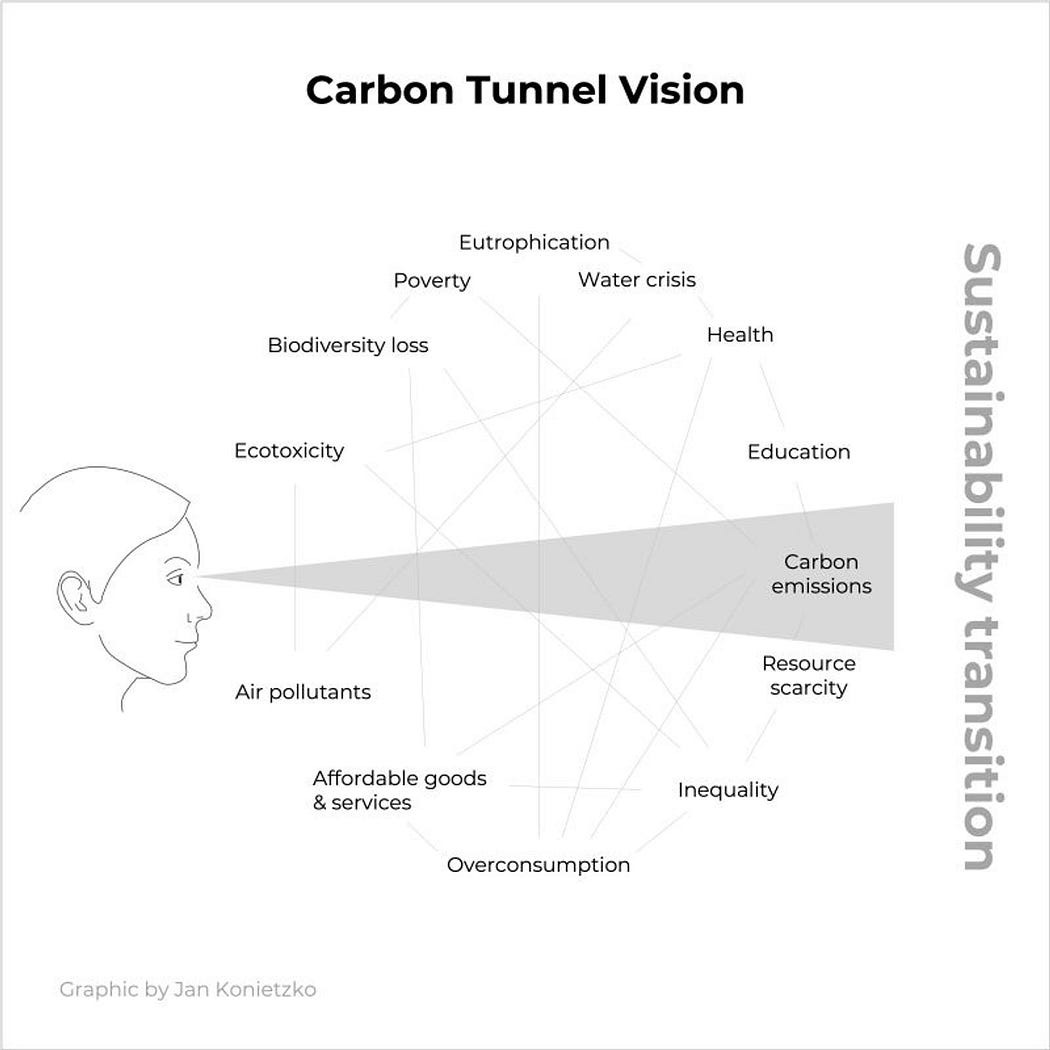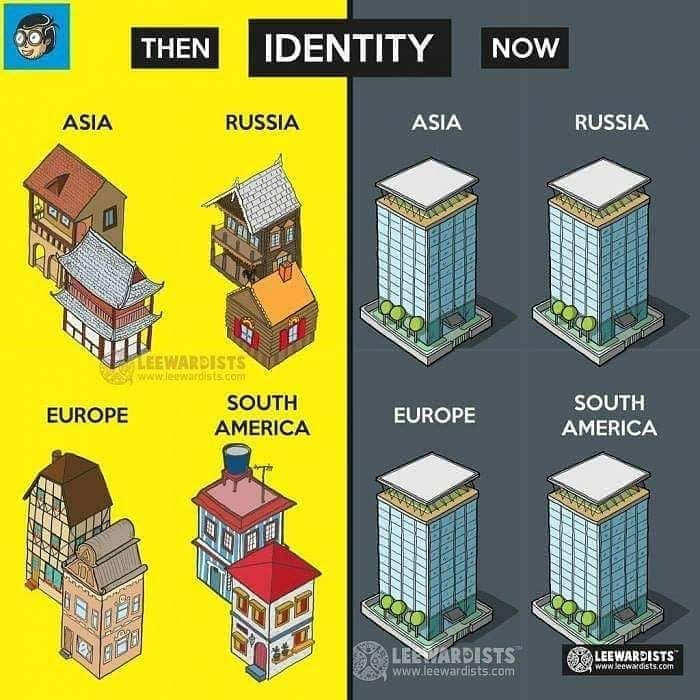There are two words in the English language that inspire existential dread: recycled polyester. If a company proudly uses these words, I think they’re most likely trying to sell me an inferior product by showcasing its “green” and “ethical” credentials. However, who defines what is green and ethical? Terms that should be clear to us all are clear to nobody.
Not so long ago, I used to attend conferences about the future of the climate. Inevitably, someone would pop up at every event loudly shouting, “WE ARE ALL DOOMED”. Aside from realising that this person may not provide the best mood at the after party, it struck me that when talking about the climate it’s incredibly tempting to use cynicism as a way of absolving yourself of personal responsibility. If we’re all doomed what’s the point in trying to build a greener and more ethical world, especially when those words are so hard to define?
I’m guessing part of the reason some people feel emboldened to make these nihilistic statements is the assumption that the ‘general public’, who depending on who’s talking are the font of all knowledge or an immovable roadblock to progress, don’t care about the planet. We should accept the fact that we are a wasteful society and that what’s good for people and what’s good for the planet are often in conflict. It says so much that the environment is often discarded in economic calculations.
However, if that’s the case why are so many companies, whether it’s Coca Cola or Toyota, falling over themselves to stress their environmental credentials? Even the fact that you pay lip service to something implies it has some importance in the eyes of your customers. This is backed up by surveys across multiple nations with completely different cultural values.
Ipsos found that 72% of individuals across 30 countries believe that they will be failing future generations if they do not take personal action to combat climate change. Still, what does personal action involve? To me, it’s remarkably simple. I deeply believe Robert Swan’s statement “the greatest threat to our planet is the belief that someone else will save it.” and doing a little is better than doing nothing at all.
With that in mind, these are 5 things I do to try to not kill the planet:
1. Recycle
May as well start with the obvious. I know I don’t always get it right as the US Environmental Protection Agency estimates 75% of all waste is recyclable but the important thing is that I try.
2. Use Too Good To Go
I cannot say enough good things about this app. Tasty food and amazing value is a winning combination, especially when food waste is so high.
3. Eating seasonally
I could lie and say I was just doing this for the environment, but I deeply dislike “fresh” food that costs a premium and tastes of nothing. Michael Pollan’s advice that “Eat food, not too much, mostly plants” rings true in a world where ridiculous diet books seemingly come out every 2 minutes.
4. Check the supply chain of what I’m buying
My disposable income is a vote. 300,000 people boycotting sugar, an ingredient shown to be more addictive than cocaine, helped end the slave trade in the UK. What we choose to purchase has power.
5. Prioritise progress over perfection
I don’t think of caring about the environment as joining a religious order. I do what I can and accept that being practically perfect in every way is an option only available to Mary Poppins.
Yes, I know the gap between words and actions can be vast. Before some zealot accuses me of not doing enough individually to counteract the “Take Make Waste” society I’d like to pose this question. Has anyone here experienced an Apple, Bosch or Whirlpool product mysteriously dying a few days after its warranty has run out? Nobody asked me whether I was happy about my phone, fridge and washing machine having a shorter lifespan. It was a decision thrust upon me.
I don’t think anybody is happy with planned obsolescence unless you happen to be a teenager asking their parents for a new phone. With that in mind, the role of government intervention is not to be underestimated. Right to Repair laws are being introduced in the European Union, India and in some states in America. Even though the scale of human waste is depressing we need to celebrate the steps taken in the right direction.
One of the most surprising sources of hope is China. Before you wonder if I have been smoking something potent praising the world’s largest consumer of cement, read this:
“Clean energy contributed a record 11.4tn yuan ($1.6tn) to China’s economy in 2023, accounting for all of the growth in investment and a larger share of economic growth than any other sector.”
They’re investing in clean energy and renewable technologies in a way that should make the world sit up and take notice. There’s a reason government exists and it’s not so people around the world can have something to shake their fists at. This may sound hopelessly naïve, yet I believe that governments should be there to act in the best interests of their citizens.
Still, some politicians’ commitment to the climate can feel like Oprah taking Ozempic while being a spokesperson for Weight Watchers. They may say one thing, but any meaningful progress feels like it can be due to factors that are not disclosed. Similarly, if talking about saving the planet was the same as saving the planet we’d all be praising Harry and Meghan for their good works and contribution to humanity.
That leads me to the most legitimate criticism I’ve seen levelled at some of the climate movement. It’s obvious that people who claim to be environmental activists promote luxury beliefs that turn people off. Luxury beliefs is a term coined by Rob Henderson who defines it as such:
“Luxury beliefs are ideas and opinions that confer status on the upper class, while often inflicting costs on the lower classes.”
If you fail to appear in court for obstructing roads in a climate protest because you’re flying to Bali don’t expect a wave of public sympathy, especially when you’ve blocked ambulances.
To me, it’s important not let this vocal minority speak for the majority. Evidence points to the fact that people often want to make sustainable choices if given an opportunity — especially about where they live.
The work of the Architectural Uprising group led by Michael Diamant does not get the attention it deserves. There are branches around the world devoted to stopping the destruction of our historic cities. Study after study shows that when you give people a vote, they prefer beauty, low-rise architecture, and walkable cities. However, there is a sinister attempt to co-opt the language of the green movement to justify the building of energy inefficient skyscrapers.
This misleading use of metrics is shown by the image below.

Where I live a building project is proposed that will supposedly create a “greener place with better air quality” by destroying a nature reserve with endangered birds, demolishing a popular shopping centre to replace it with 25 tower blocks and, the cherry on top, putting a potentially lethal electric bus garage underneath at least 7,000 peoples’ homes. If the words “green” and “ethical” have no meaning they’re dangerously misused.
They’re misused for a specific reason. A lot of the language about “green initiatives” assumes that people are fundamentally superficial and materialistic despite evidence to the contrary. When you ask young people what they’d like to receive as gifts, a majority of over 60% choose the more sustainable options of experiences with friends and family over material objects. Though, much to the chagrin of the person offering the survey, I answered if people want to buy me gifts, I should at least offer them multiple opportunities to do so.
If my behaviour and in some senses this article shows anything it’s that while perfection is not an option available to most of us — progress is. Individual choices may be seen by some as insignificant, but they can add up to a lot. Likewise, our governments should never forget they are there to represent the people not privately profiteer. To conclude, I look at the climate as a pandora’s box situation. Even with everything that humanity has unleashed there still has to be hope.





